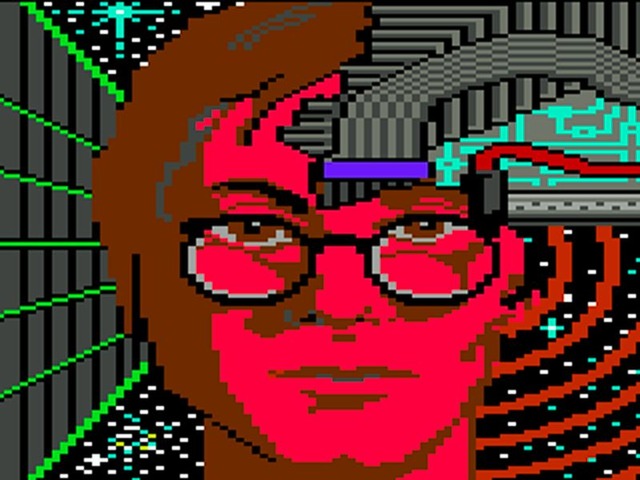I’d like to settle on a distro, but none of them seem to click for me. I want stability more than anything, but I also value having the latest updates (I know, kind of incompatible).
I have tested Pop!_Os, Arch Linux, Fedora, Mint and Ubuntu. Arch and Pop being the two that I enjoyed the most and seemed the most stable all along… I am somewhat interested in testing NixOS although the learning curve seems a bit steep and it’s holding me back a bit.
What are you using as your daily drive? Would you recommend it to another user? Why? Why not?
Debian – The Universal Operating System
Because it’s universal, runs on everything rock solid and stable.
For the past six years it has been Kubuntu, but I think it’s time to finally abort Canonical and their idiosyncrasies and choose Debian as a KDE base, especially now that Debian 12 includes non-free firmware by default.
This is what I need to do. Just too much inertia in my own stuff to make the switch so far.
I kinda hope they rebase KDE neon to debian. That would be dope.
I’ve always felt that Arch has the least amount of personal compromises. For “bleeding edge,” it’s also generally stable and has a wealth of community support and documentation.
I’ve hopped around to a bunch of different distros, but I always return to Debian Stable. I don’t really need the most bleeding-edge packages for my system, due to my use case.
Most of my actual apps are installed via Flatpak, so they’re all pretty recent, while still being on a rock-solid stable distribution.
Fedora, really uptodate software, GNOME, stability of a server distro.
Debian for my work. It is stable and I’ve been using it for many years.
I use Debian for servers. I recently began migrating from Arch on my desktops to NixOS. The shift from the fantastic Arch wiki documentation to the NixOS documentation was a huge stumbling block, but I got through it. It took a lot of time to get NixOS to a nice state on my main laptop, but once I did, installing it to my 2013 macbook air and configuring it to be exactly like my main laptop took all of 15 minutes. That was a huge deal for me. The next hurdle is going to be installing it on my desktop with nvidia GPU, but I don’t expect it will take too long.
I’ll probably start migrating servers to NixOS where I can, too.
Here is my NixOS config repo, if that helps: https://github.com/thejevans/nix-config/
Arch Linux because k.i.s.s
I have been a Linux user since the Red Hat Halloween release (back in the twentieth century) and have run SUSE, Slackware, Red Hat, Arch, Debian and countless of their forks. Currently I’m settled on Pop!_OS 22.04 NVIDIA for my daily driver laptop with a built-in Nvidia GPU. It is rock solid and can run my three displays, each with a different resolution and refresh rate, without ever missing a beat. For everything else I use Debian and most of my clients run either RHEL or Oracle SEL on their production servers.
TL;DR: Pop!_OS daily driver and Debian for everything else.
Fedora. Mainly because I work at a RHEL shop and I want a daily driver that is somewhat similar to my work environment.
Arch or manjaro because I can find so much more stuff in AUR.
unless we’re talking about my main machine, which runs gentoo, i’ll always default to alpine. super solid base system and packages. super accessible when it comes to upstreaming packages. I only wish they had s6 as an option for init/service manager
Fedora for me as it seems to work the best for my hardware, will be moving to Kinoite when I get the chance. i already am using distrobox and Flatpak in general. Tried NixOS (with Root on ZFS) but couldn’t get hp-wmi module to work on on it. I was having some problems with Opensuse Nvidia drivers (wakeup from suspend didn’t work sometimes). The one thing I miss on Fedora, that Opensuse has is Full-Disk Encryption.
I’m using Arch simply because of familiarity and comfort in using it. That and pacman being fast usually helps me make up my mind whenever I try something else. I really hadn’t experienced any major breakage in any of the packages in the standard repos, especially if everything is configured correctly. So I don’t really have anything to say against Arch’s stability.
I also hear good things about Tumbleweed, so that could be an alternative and more complete out-of-box package, but that also highly depends on how comfortable you’ll be with openSUSE’s way of doing things.
It all boils down to how you prefer to configure and manage your system and its packages, really. Nothing much more than that. As long it does the job, it’s usually fine.
pacman is so fast. I love Fedora but dnf is such a chugger
Yep, especially on a slow machine, it can be very noticeable.
Although I think I remember reading about some dnf optimizations that can be applied to help the slowness.
openSuse. After my years of distro hopping ended over a decade ago I settled on openSuse Leap and never switched to something else again. It’s reliable and gives me the least bullshit. And by now it’s the one I have the most experience in.
//edit
Leap on my server and tumbleweed on my work laptop but Leap would be sufficient there, too.













